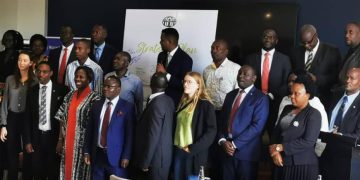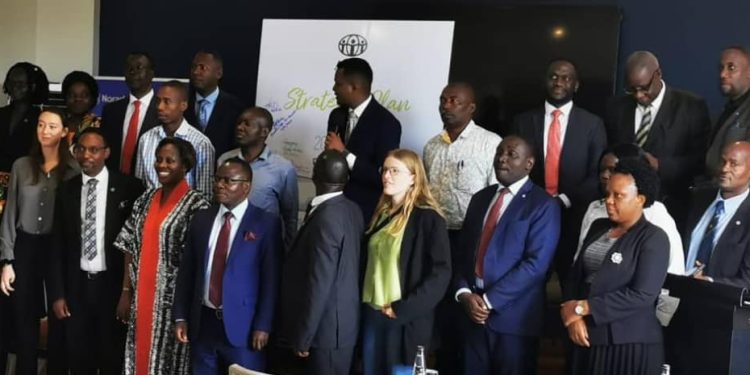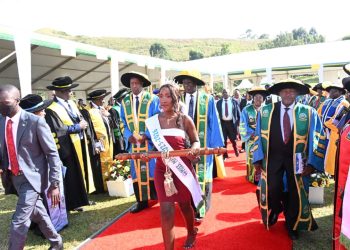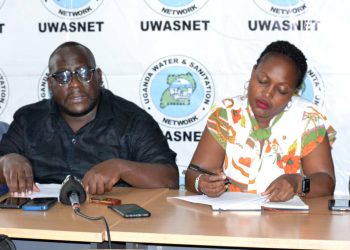The Adventist Development and Relief Agency (ADRA) Uganda has launched its Vision 2030 country strategy with a focus on four major pillars, which include financial sustainability, staff well-being, faith, people and systems, and integrated programming.
“This strategic plan has been developed through extensive consultations with internal and external stakeholders to outline ADRA Uganda’s commitment to addressing critical needs and empowering marginalised populations nationwide,” said Mr. Mwanza John, ADRA Country Director, during the launch at the Golden Tulip Hotel in Kampala.
He noted that “the funds and resources are the foundation on which every program is built. Once you have the money, you can be able to deal with the activities or deliver the programs, and the staff can be able to be paid. Now, with the money, our vision is to be able to have at least 20% refinance the program 20% of the budget by 2030. Right now, we are not there. So this is what we are looking at: we need to be able to ensure that we generate money and that the programs are self-sustainable, and so we are looking at things to do with social ventures going forward.”
“Another item is to look at the staff themselves who are delivering these services. Many times, as management, we focus so much on delivering services to the communities but forget that person who is doing the forgetting and leaving that person behind and not knowing what the staff really goes through. And so this is the deliberate effort by us to put more emphasis on the staff and to ensure that we are able to generate 20% of the program from our own resources to finance the activities but also to ensure that we use the faith networks. And then the last one is to do with the triple nexus in terms of integrated programming. So basically, this is what we have been discussing.” He noted.
“Moving forward, because alone we cannot deliver development. It requires all of us and all other sectors, even the donors themselves, that they can be able to participate in the delivery of the services. So we are calling upon the private sector to come forward finding ways. How do we work together to ensure that we build a better Uganda.” He remarked
Dr. Maka Moses Ndimukika, the archbishop of the Uganda Union of the Seventh-day Adventist Church, who is also the chairperson of the board of ADRA Uganda, said that “this launch of vision 2030 strategy is not only for ADRA but for all of us and the government of Uganda, being the vision bearers.”
“At the end of 2030, we shall come back to judge whether ADRA Uganda has fulfilled the vision. This strategy is not easy, but it’s achievable if we work together.” He said.
He further called for enhanced collaboration among private companies, NGOs, and the government to empower vulnerable populations, including refugees, girls, and others.
“Majority of vulnerable people face numerous challenges, including poverty, unemployment, discrimination, and climate change, which limits their productivity in society. Collaborative efforts among all stakeholders will ease inclusive service delivery to all Ugandans.” He remarked
Focused areas
- Enhancing the development and well-being of ADRA staff.
ADRA Uganda will prioritise staff professional growth, wellness, and engagement by creating an integrated support system that fosters a motivated and capable workforce.
- Expand Integrated Programs
The organisation (ADRA) will expand its interventions to be more comprehensive, gender-sensitive, community-led, climate-smart, and multi-sectoral, aligning with the triple nexus approach.
- Strengthen implementation through church and interfaith partnerships.
ADRA Uganda intends to enhance the visibility and sustainability of its programs by leveraging local church structures and partnerships to broaden its reach and impact.
- Establish a profitable social venture linked to the program.
ADRA Uganda will focus on financial sustainability by engaging with private fundraising efforts and developing a self-operating social venture that supports the annual program budget.
About ADRA
Adventist Development and Relief (ADRA) is a global humanitarian organisation of the Seventh-day Adventist Church, dedicated to serving humanity so that all may live as God intended. ADRA Uganda, founded in 1984, is a locally registered INGO licensed and accredited by ADRA International, responsible for all aspects of ADRA work in Uganda.

































